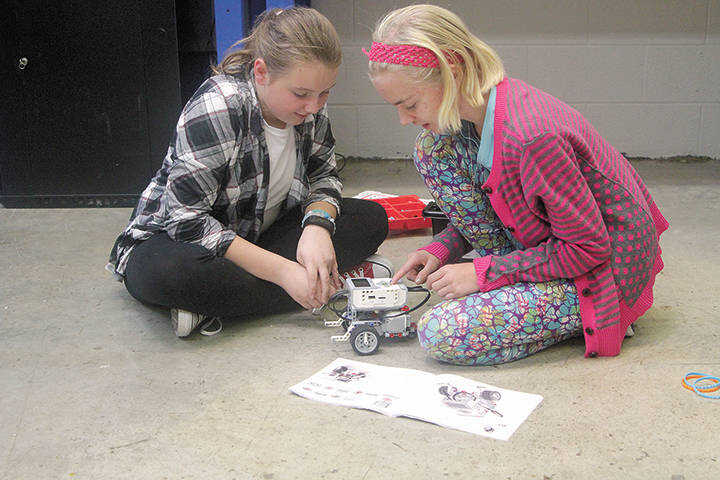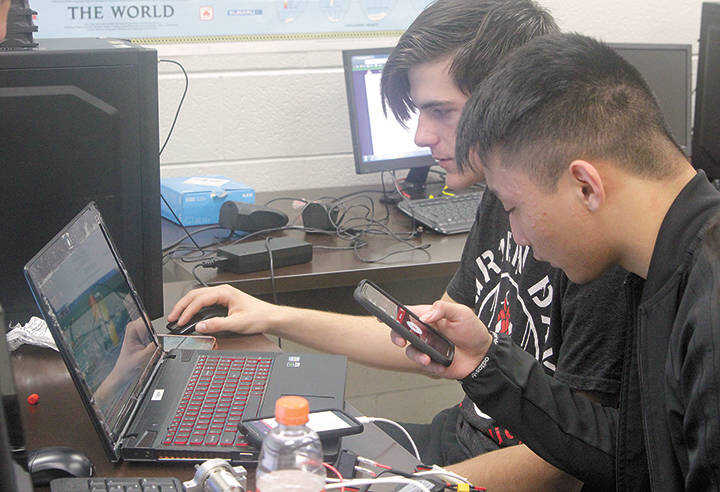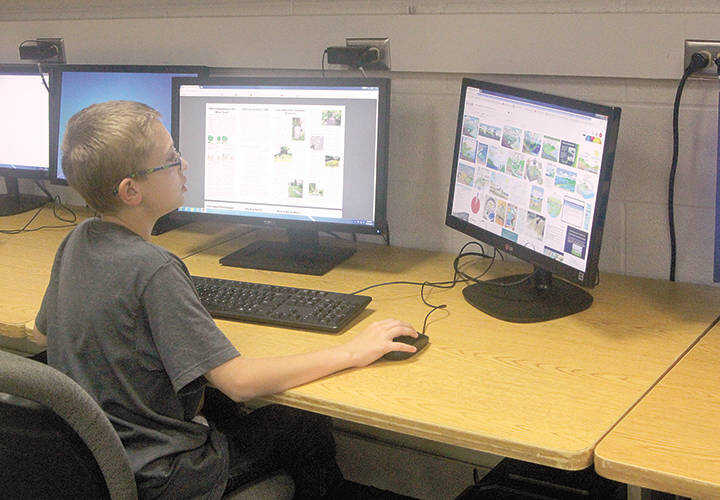Nevada students learn engineering skills

Nevada R-5 students in the middle school and high school will be gaining hands-on experience this year in solving problems and having fun while competing against other teams in the area.
Nevada Middle School teachers Angie Landoll, science, and Ashley Blight, technology, are the sponsors for the First Lego League teams for students in grades six through eight. Each year the students face a different challenge specified for the competition, and this year they are learning about water and must come up with some problem that needs to be solved and then research the problem and develop a possible solution for the problem.
Blight said they do not have to actually build the solution, but they must create a written report and then make a presentation to some group the problem might impact.

On Monday the students finished assembling their robots and began doing online research about possible problems they can then develop a solution for.
On Monday the students and their sponsors will take a field trip to the city of Nevada’s water treatment plant to learn how it operates. Nevada’s water treatment plant use of a reverse osmosis process to purify its drinking water is unusual and will give the Nevada students an opportunity to see something few other students in the country will have a chance to visit.
The following week the students will begin programming their robots.

Landoll said because there are not many other schools competing in their district, the Nevada team will go straight to the district competition at Greenbush in January.
Nevada Regional Technical Center instructors Greg Tabor, First Tech Challenge coach, and David Longobardi, Project Lead the Way instructor, are working with the high school First Tech Challenge team. Tabor said they have nine students this year, with two who competed on the school’s team last year. One of the seniors on last year’s team received a scholarship through the program, he said.
This year’s challenge, First Relic Recovery game will involve recovering a “relic” from the game board with their robot. The game board is 12 feet square with 12-inch walls around it. During the first part of the game, the robots must perform a task on its own using built-in programming. Students control the robots during other parts of the game.
The Nevada team was still working on getting their communications with the robot, which is done using cell phones, to work correctly Wednesday. Once that is working correctly they will begin assembling their robot.
The students in addition to building their robot must keep an engineering notebook detailing everything they do to their project.
This year the R-5 team will host a First Tech Challenge meet on Dec. 9, from 10 a.m. to 2 p.m. in the auxiliary gym.
“By the time we are done it will be more like 8 a.m. to 5 p.m.,” Tabor said, adding that includes the preliminary sign in and post-event work.
“This year we have our own game board that we will take to the gym,” he said.
Both of these programs are not just about the robots. The students learn other valuable skills that they will use throughout their lives.
According to the game manual “They also cultivate life skills such as:
Planning, brainstorming and creative problem-solving. Research and technical skills. Collaboration and teamwork. Appreciating differences and respecting the ideas and contributions of others.”
The program also fosters an attitude of “Gracious Professionalism,” which is a loosely defined term for things like helping team members, as well as helping the other teams.
